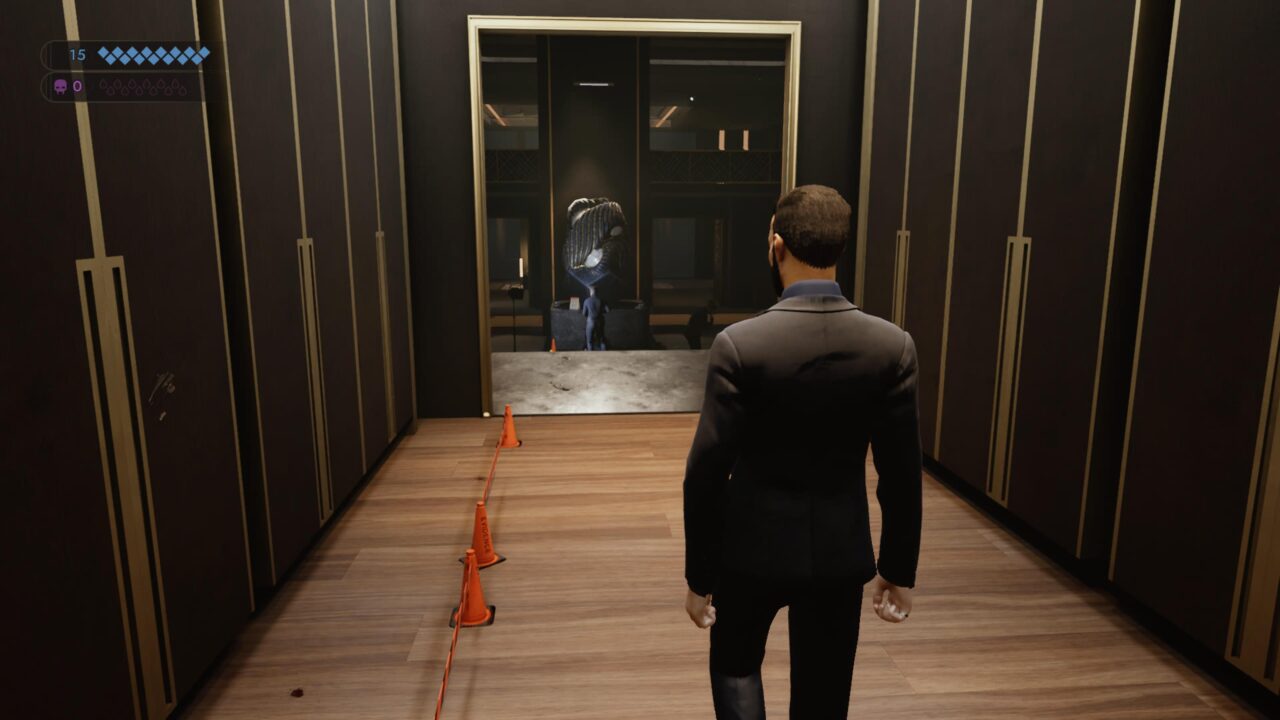Vampire: The Masquerade – Swansong Review – Vampires Suck (Blood)

Developed by Big Bad Wolf Studio
Published by Nacon
Available on PC, PlayStation 4, PlayStation 5, Xbox One, Xbox Series X|S, and Nintendo Switch
MSRP: $49.99
It’s always fun to see new World of Darkness games. While they may range in quality, see Wraith: The Oblivion – Afterlife and Werewolf: The Apocalypse – Heart of the Forest for solid games, and Werewolf: The Apocalypse – Earthblood for… not, I do love seeing the world. Vampire: The Masquerade – Swansong is the latest entry, featuring dialogue-heavy adventure gameplay and a big mystery for three characters to solve. Is the mystery worth solving though?
Taking place in Boston, in 2019, the modern-day vampire clans have a problem. A party, which was meant to celebrate the new partnership between the Camarilla sect and the Hartford Chantry sect, goes wrong when a mysterious organization shows up and guns down a bunch of vampires. Left scrambling to fix this partnership, discover who betrayed them, and find the killers, the leader of the Camarilla sect is in a bit of a tight spot.
You’ll spend the game swapping between three main characters: Emem is a party girl who’s trying to enjoy her eternal youth and avoid vampire politics, Leysha is a seer who’s being troubled by mysterious visions of the future, and Galeb is a very old vampire who serves as an enforcer. Each character has their own motivations, desires, and skills, and each of them will provide different, and important, viewpoints on the events that unfold. Depending on the choices you make, not all of them will make it to the end of the game.

Interestingly, Swansong is mostly based around arguments and discussions. This may not be a huge surprise if anyone is familiar with Big Bad Wolf’s previous work, The Council, but also it fits the theme and setting really well. Each character has willpower, which you can spend on skills to try and match or beat your opponent’s level in the same skill. Should you only match it, you’ll roll a dice to see who wins, though even if you beat it there’s no guarantee that the opponent won’t also raise their skill to match you. Win or lose, you’ll get some Willpower each conversation, although you get more for losing so it’s always worth the effort.
You also have to manage your hunger. You can use special vampire powers, each character has unique ones, which will raise your hunger. Too much hunger will give you negative buffs, and even force you to kill civilians to quench it. You can, however, find safe zones and lure civilians to them to feed, or gorge on a rat in a pinch if things get really bad. While there’s very little to this mechanic, you can easily feed with almost zero effort, it’s still neat to see it represented here.

Conversations make up the bulk of Swansong, but in addition to this, you do have to occasionally solve puzzles. They’re not bad, and you will have to put a bit of work into actually paying attention to and solving these puzzles. For example, at one point Emem gets locked in a memory prison and needs to rotate these giant rings to escape, lining up paths from the ring to keep blood flowing. Another point has Galeb tearing apart an apartment, needing to find passwords through documents left behind to open safes and find hidden rooms. There’s quite a bit of exploration involved, and you can sometimes use your skills to assist. Thankfully, there are always options when you lack the correct skill points, be it items that boost your skills or just other solutions. Sure you can hack a safe code, but you can also pay enough attention to just, you know, find the password.
As you make choices, solve puzzles, and find interesting information, you’ll earn experience points and traits. Experience points seem obvious, but you can use them to upgrade each skill and conversational ability of the playable characters. This will help unlock new abilities for them, such as Galeb being able to use his strength-based powers at no cost. Traits, on the other hand, are passive buffs or debuffs that you earn for actions, both good or bad. At one point Leysha provided a document that proved another character’s innocence in the party massacre. I promptly received the “merciful” trait, which gave me a better chance for a successful outcome if I tied the opponent’s level in a specific skill.

While this is all fun and good, it doesn’t change the fact that at times I felt like Swansong is uneven. While using the skills is interesting, it’s frustrating watching myself do everything correct only for a random dice roll to decide I failed. This may be the tabletop life, but it’s not an experience that’s actually fun to see in video games much. There were a few times when I was left wandering around the world rubbing up against walls trying to figure out what I could actually interact with or not. Some of the voice acting, especially for Leysha’s kid Halsey, is really bad and actively took me out of the world. There’s also a tendency to just sort of drop a bunch of proper nouns in a conversation and not elaborate on what they mean. At least there’s a codex I can read if I ever needed to figure it out.
While these are annoying, I was still rather compelled by Vampire: The Masquerade – Swansong by the end of the game. As I said at the start, it’s always great getting a chance to explore the setting, and it helps that this is an interesting story with plenty of characters I actually found myself invested in. The tabletop-styled mechanics are certainly interesting, and I see few other games attempt to emulate them. I’d love to see another shot at this style of game, just hopefully with some of the rough edges ironed out.
-
Vampire: The Masquerade
Categorized: Horror Gaming Reviews
